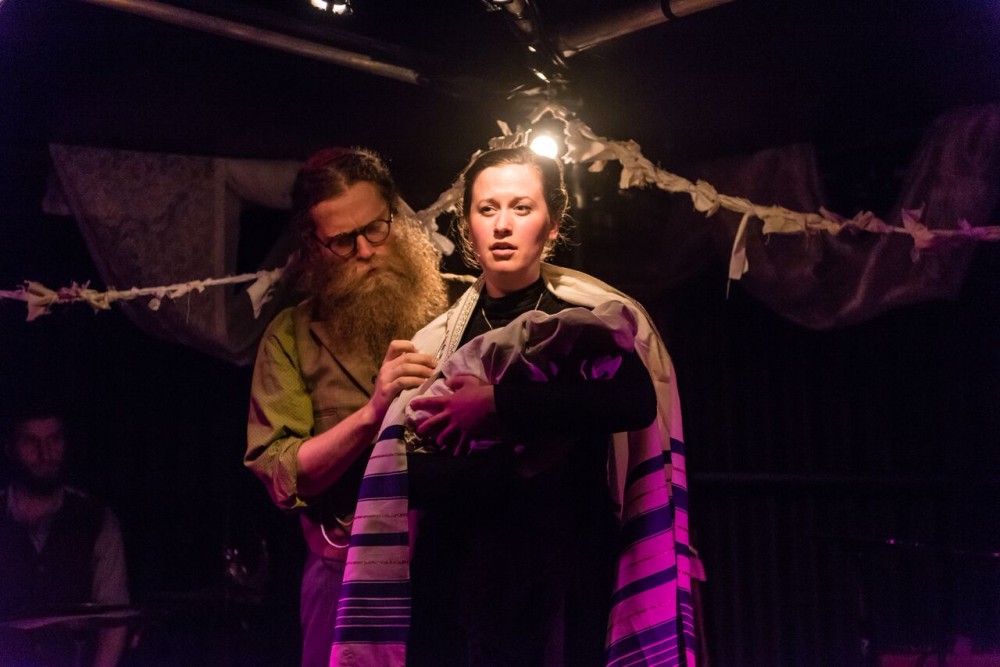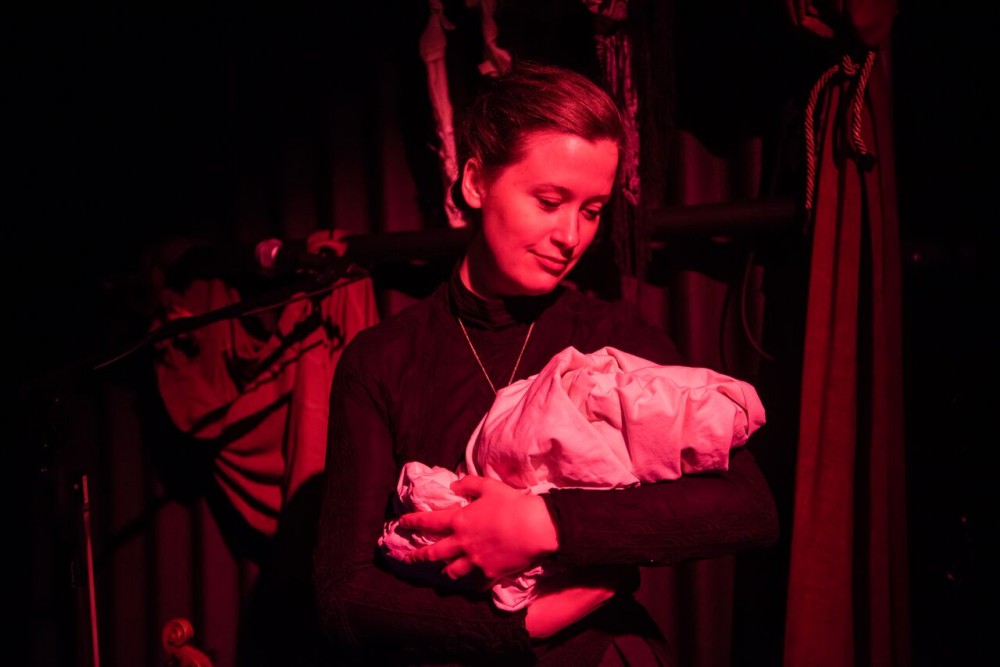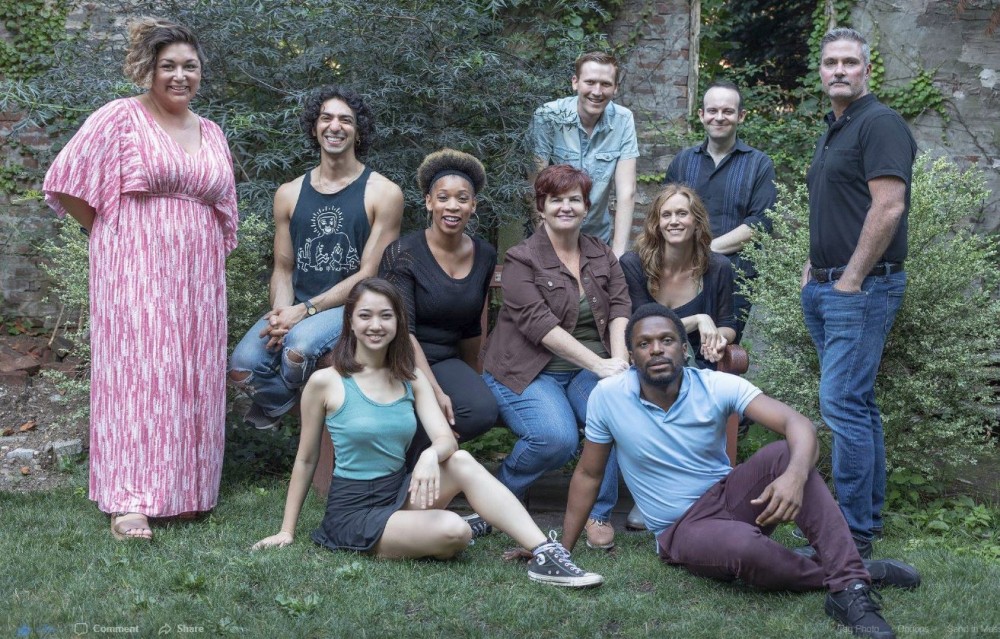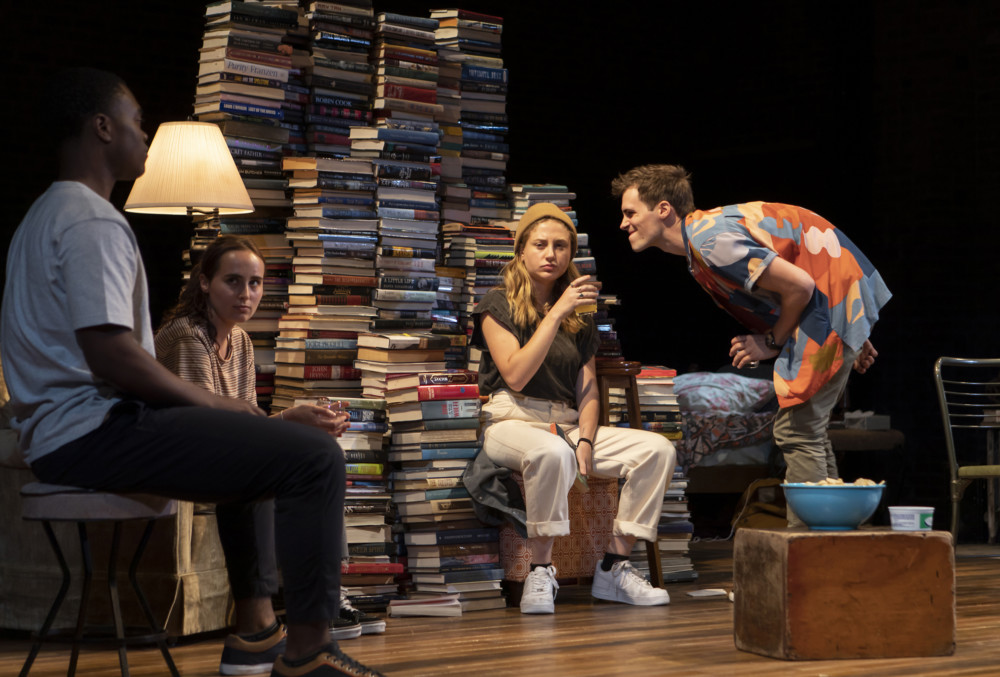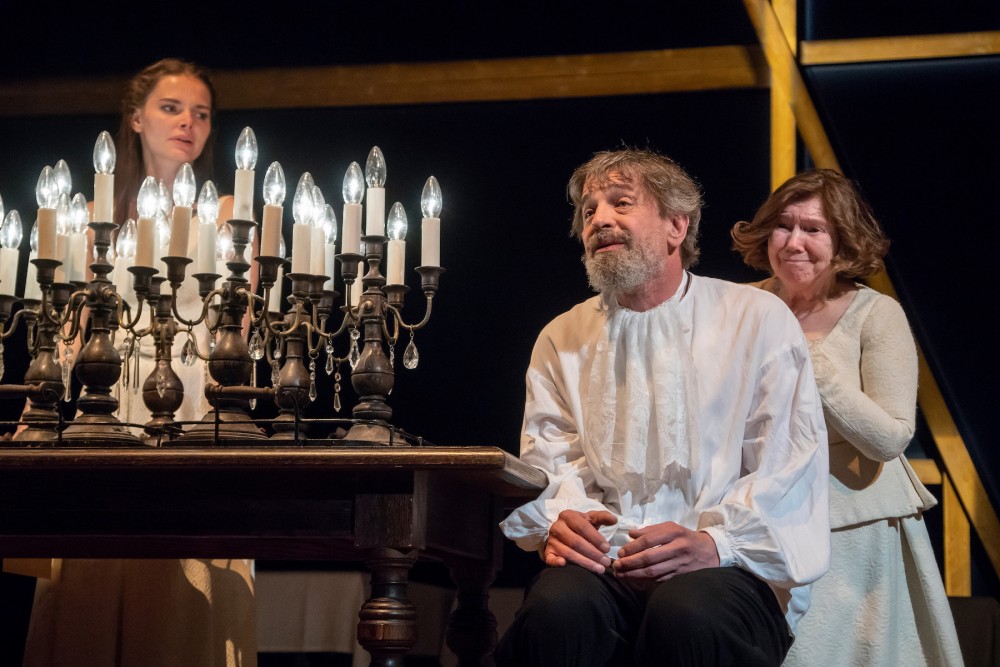by Samuel L. Leiter
The word “refugee” in Old Stock’s subtitle is as fraught as ever but the refugees depicted in this unusual musical are not from any current world crisis. Instead, they return us to the days of the early 20th century when the Jewish diaspora was sending countless displaced persons—like those at the end of Fiddler on the Roof—from Eastern Europe to the West, in this case Canada.
Just before the show, my plus-one, a new friend, was telling me of her own refugee experiences in which her family escaped Poland in 1939, was shipped by the Russians (whose army her father refused to join) to Siberia, and eventually immigrated to America in the early 1950s.
Her passage into the New World, ironically, was through Halifax, Nova Scotia, where, in Old Stock, Chaim Moscovitch (Chris Weatherstone) and Chaya Yankovitch (Mary Fay Coady), meet in 1908 after having fled Romania. He’s 20, single, and shyly awkward; she’s 24, widowed, wry, and worldly-wise. One, we’ll learn, got out, “before it was too late.” The other, “after it was too late.”
Old Stock: A Refugee Love Story, presented by the Nova Scotia-based 2b theatre company, fills its 80 minutes with the tale of Chaim and Chaya’s immigration procedures, courtship, marriage, sexual relationship, marital and parental problems, employment, and familial legacy after settling in Montreal. External events, such as Canadian antisemitism, are given short shrift so we can witness the personal traumas of this actual, but at the same time representative, refugee couple.
Created by Hannah Moscovitch, Ben Caplan, and Christian Barry, the latter also directing, it’s the story of Moscovitch’s own antecedents. The story will be familiar to most people who are themselves immigrants or are closely connected to people who fled oppression, pogroms, war, or disease to find new lives on Canadian, American, or other welcoming shores.
More unique than the story is its presentation as a cabaret-type entertainment. The set (by Louise Adamson and Christian Barry, who also did the atmospheric lighting) shows a found-object like décor at the sides, with the upstage area filled by a large shipping container.
It opens to reveal four excellent musicians: Graham Scott on keyboard and accordion, Jamie Kronick on percussion, and the actors of Chaim and Chaya, respectively, on woodwinds and violin. The songs, most of them by Caplan and Barry, are generally klezmer-inflected with suggestions of other genres, from bluegrass to rock.
Managing the show is an earthy, bible-citing, hipster emcee-narrator and singer/banjo/guitarist in the person of the charismatic Ben Caplan. Bespectacled, longhaired, and hugely bearded, he dispenses contextually distracting profanities as if they were verbal dandruff. Dressed in a purple high hat and long, purple coat, Caplan looks like a cross between the Mad Hatter and Rabbi Shlomo Carlebach (especially when wearing a prayer shawl). He can also growl the blues like Tom Waites or wail the Hebrew mourner’s prayer, “El Maleh Rachamin,” like a Lexington Avenue cantor. It’s a shame, though, that his lyrics are too often indecipherable.
Most of his songs contain wisdom-spewing riffs, intended more as ironic commentary than to move the plot along. Take, for example, his number about how often a husband must pleasure his wife, with lines like “Laborers it’s twice a week, you’ve got to make your lady squeak.” Unfortunately, the lengthy number quickly goes limp with its endless litany of euphemisms for intercourse, like “Batter-dipping the corn dog” or “Doing the horizontal greased-weasel tango.”
Old Stock would be much better with a bit less of the ubiquitous Caplan (whose presence is reminiscent of Dave Molloy’s in Natasha, Pierre, and the Great Comet of 1812) and more emphasis on having Weatherstone and Coady enact the Moscovitch story, so much of which is Caplan’s responsibility. Even the antisemitism material (which pits Canada’s “old stock” against its immigrants), or Chaya and Chaim’s tragic flashback memories, are left to him rather than having them expressed in dramatic action.
There’s a considerable amount to appreciate in Old Stock but, apart from its implicit suggestion that opening our doors to safety-seekers is the humane thing to do, even in these troubled times, it’s nonpolemical. Instead, it’s a well-performed musical celebration of a particular refugee couple’s experience, one roughly similar to countless others. Many, I’m sure, will find the show deeply moving. I admit it mostly missed my heartstrings but I could hear it zinging those of my refugee plus-one.
Photos: Stoo Metz Photography
Old Stock: A Refugee Love Story
59E59 Theaters/Theater A
59 E. 59th St., NYC
Through April 22


